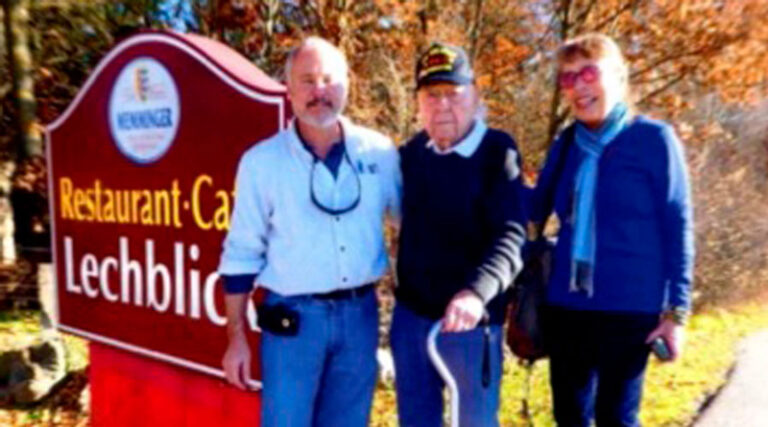By Holly Dillemuth Republished with permission from Ashland.news
Al Willstatter, an Ashland World War II veteran who helped liberate Jews from concentration camps and later served as an Ashland City Councilor, died on Nov. 3, just more than a week shy of Veteran’s Day, Nov. 11. He was 97.
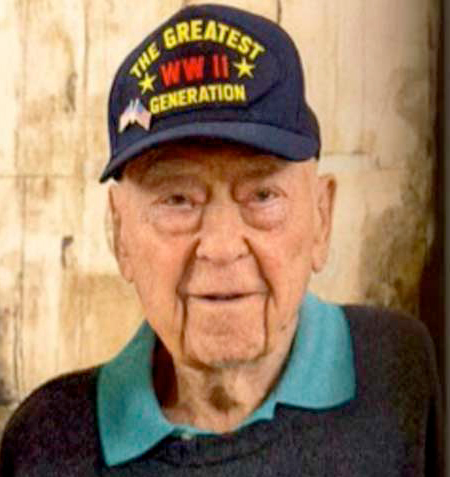
Alfred “Al” Willstatter “ saw combat action in the final days of the Battle of the Bulge” and served in U.S. Army Intelligence during the war, according to “Hidden History of Ashland, Oregon,” a book written by Ashland historian and former Southern Oregon University adjunct faculty Joe Peterson. He helped track down Nazi SS officers who fled from concentration camps and served as a U.S. Army interrogator, helping identify officers who would be tried in Nuremberg.
“I really do believe that anyone who had the privilege of knowing Al Willstatter touched history,” Peterson told Ashland.news Thursday. “If you think about the events of the 20th century, World War II, the Holocaust, Nuremburg Trials, he was a major participant in every one of those events. I don’t know how many people can say that.”
Willstatter was born Jewish and the oldest of two boys on Oct. 17, 1925, in Landsberg, Germany, to Louis and Luzia Willstatter. The town was also home to the jail where Adolf Hitler wrote “Mein Kampf,” which was published that same year. Both Willstatter and his brother, Herbert, were under the age of 13 when their parents sent them away on a boat to New York in 1937, to keep them far from Hitler’s influence and grasp. The boys eventually went to live with their father’s first cousins in St. Paul, Minnesota.
“Dad left us off at Hamburg to board the USS Lines Ship, the USS Roosevelt,” Al wrote in a book “Al’s Story” that he wrote with friend Betty LaDuke, in his recounting of the trip. “At the ages of 11 and 12 we just accepted it as an adventure. Upon boarding us, a stewardess sort of looked after us.”
Al recalled during the trip that the food was good, but led to an upset stomach.
“I recall expelling a meal on a fellow passenger,” Al said in his writings about the trip. “My brother upon arriving in New York wrote about it graphically in a letter as well as tearing my new coat while playing shuffleboard.”
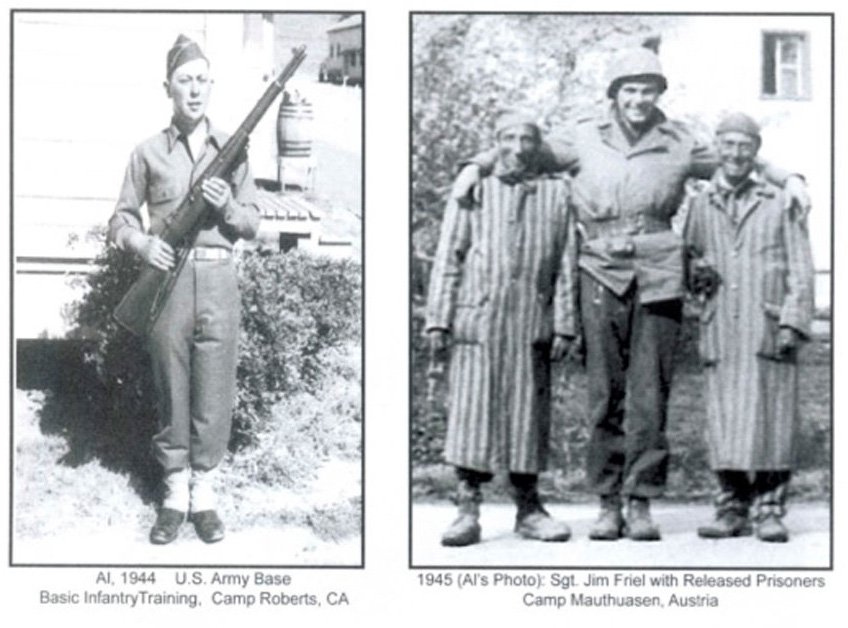
The boys’ parents also made it out of Germany, arriving in St. Paul in 1940.
Once settled in Minnesota, Al was placed in a much lower grade level for his age due to his inability at the time to speak English, said Karl Willstatter, Al’s son, who lives in Denver.
“By the time he was 17, he was the editor of the school newspaper,” Karl said.
“He was always kind of a visionary,” Karl Willstatter said of his Dad, whom he called “Pops.”
Karl said his parents, Al and Edie, wanted to buy a business and they picked the pool. Admission was 35 cents.
“They ran that for 12 years and that was like the center of the town,” Karl said. “What a cool way to grow up.”
Al served as an Ashland City Councilor from 1968-1972. He also helped establish Rogue Valley Transit District (RVTD).
A longtime friend of Willstatter and the family, former Phoenix City Councilor Mike Stitt recalled many a conversation between them about local politics over the 35-year friendship.
Stitt remembers Al as “solutions-oriented,” especially in civic life, despite their often differing opinions.
“In my 71 years, there’s maybe three, possibly four people that have affected my life that you don’t forget,” Stitt said. “Al was one of those people.”
Peterson believes Al will be most remembered by the community as the owner of Twin Plunges.
“Al was very modest about his history,” Peterson said. “I have a feeling a lot of the people in Ashland probably knew him from the Twin Plunges swimming pool from the 1960s and early 1970s.”
Willstatter operated Twin Plunges Pool between 1966-1978, at the First Street site now occupied by the Ashland Food Co-op. In a book, “From Nat to Now” by Edith Willstatter, Al’s late wife, she chronicles the couple’s life as business owners.
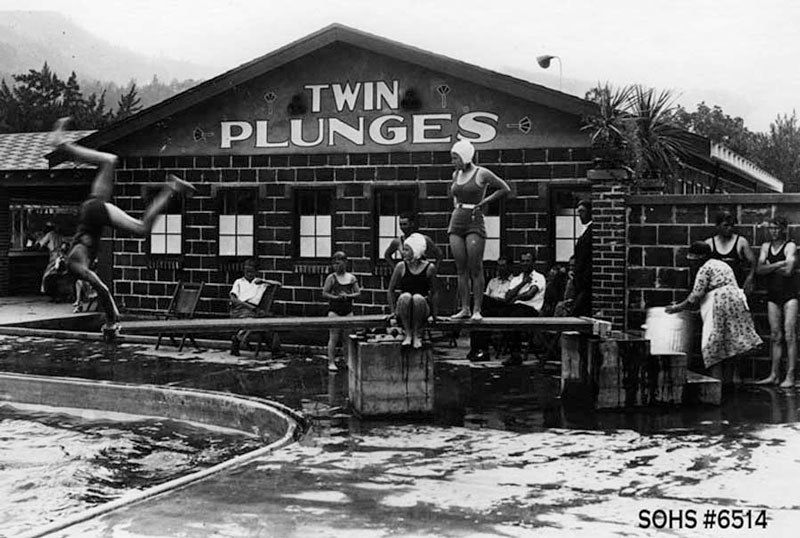
Later in his life, Willstatter began to speak up more about his experiences during World War II.
Willstatter agreed to take part in an Honor Flight to Washington, D.C., to visit the World War II Memorial along with family members and more than two dozen other veterans in July 2015.
“There we were welcomed with bands and crowds of people cheering for us,” said Willstatter, in a book compiled by friend and colleague Betty LaDuke. The book is called, “Al’s Story: From Landsberg, Germany to Ashland, Oregon, and Back Again,” which he helped write with LaDuke.
In “Al’s Story,” Willstatter shared that his greatest joy of the day was connecting with his granddaughter, Lindsey, and receiving a surprise letter from his son, Kurt, at the memorial.
“It was pretty cool because that (trip) was one of the things that opened him up to talking about his life,” son Karl said.
Peterson wrote in his book about Willstatter, that “Al saw military service as a way to repay his adopted country for taking him in and saving him from death in a concentration camp.”
Karl said visits to Germany in the last 10 to 15 years also helped his Dad share more about the war. He was able to reconnect with childhood friends of more than 70 years during a 2014 visit that friend Betty LaDuke helped him chronicle in “Al’s Story.”
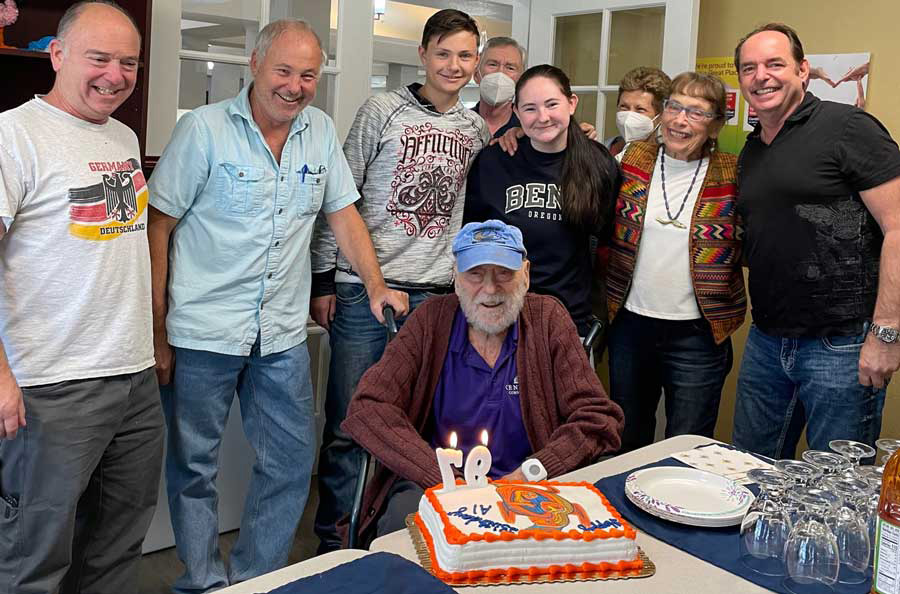
She and Willstatter became friends after the deaths of their spouses. Willstatter’s recent 97th birthday cake in mid-October, shared by his family, included a likeness of one of LaDuke’s “turtle” artwork panels. Willstatter, a man of many talents, was an artist in his own right, creating sculptures from wood.
Willstatter was preceded in death by his late wife, Edie. He leaves behind three sons, Steve, Kurt, and Karl, and five grandchildren.
“If everybody in the world were like him, it’d be a whole lot better place,” Karl said. “What a great life, though.”
Reach Ashland.news reporter Holly Dillemuth at hollyd@ashland.news.

